One of the most promising aspects of the decentralized Web (DWeb) is that it’s a movement that envisions a world in which anyone can be empowered to build their own communication networks.
But DWeb is about something more than just internet connectivity. For many, the DWeb movement has grown beyond the idea of creating a decentralized World Wide Web. The term has come to include all manner of decentralized infrastructure across all layers of the network stack.
What this means for people who live in areas where internet connectivity is scant or nonexistent is that it’s no longer simply a matter of connecting them to the mainstream global internet. People can build local networks and web applications that fit the needs and desires of their own communities. They can redefine the utility of networked communication by listening to what people need and designing tools and applications to address them.
We identified some of these remarkable social-tech innovators and have invited ten of them to join us at DWeb Camp. They are coming from all corners of the world to share their experience building decentralized networks and applications. Our hope is that they too will learn about tools and approaches to decentralization that can help inform and support the awe-inspiring work they do on the ground.
The following are bios of this year’s DWeb Global Fellows.
Angelica Blevins + Zach Mandeville
Angelica and Zach are artists, coders, and solarpunks living in New Zealand. They met over a mutual appreciation of each others’ work — Angelica’s comics and Zach’s zines — which sparked a romance that led to marriage. Their path to decentralized tech came from burnout and depression, caused largely by Web 2.0 and the damaging extractive quality it has on artists. As they sought technical autonomy in how they developed and shared work, the initial joy of creation was sparked again. The internet was no longer a trigger for depression, but a wellspring of joy. There was also a strong mystic history and presence in these technologies that both were drawn to, and wanted to fuel more.
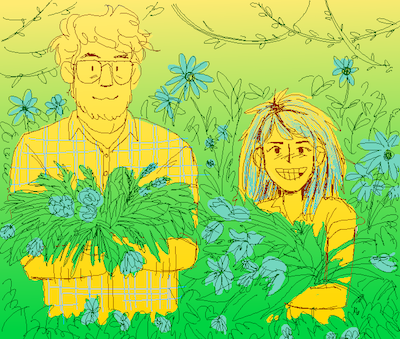
They are now active community members in Scuttlebutt and love building arty and dumb things in Beaker. Their passion is in helping our decentralized spaces support artistic communities as much as it supports technical ones, to draw out the magical element already present in our code, and to help spread the empowering joy they found in these spaces to people who feel outside of tech culture.
Hiure Queiroz
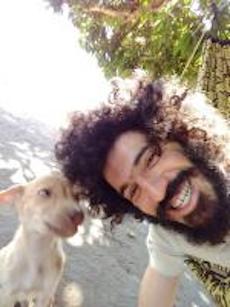
Hiure holds an undergraduate degree in physics and a Masters degree in materials science from the Technological Institute of Aeronautics (ITA) and is a founding partner of Sítio do Astronauta in São Paulo, Brazil. Hiure is a very dedicated researcher, responsible for some important technical developments and solutions currently provided by Coolab. He is interested in the study and development of science and technologies through the promotion of seminars and workshops inspired by the do-it-yourself culture. In these meetings he introduces handcrafted tools, simple materials and electronics in order to potentiate the construction of things which could function to facilitate solutions in everyday life.
Kanyon Sayers-Roods
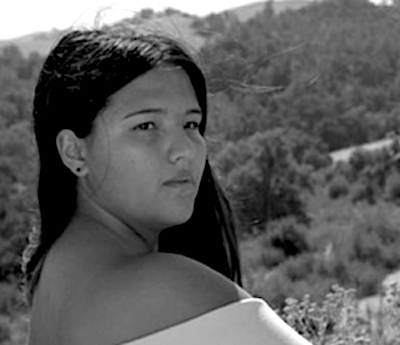
Kanyon is Costanoan Ohlone-Mutsun and Chumash; she also goes by her given Native name, “Coyote Woman”. She is proud of her heritage and her native name (though it comes with its own back story), and is very active in the Native Community. She is an Artist, Poet, Published Author, Activist, Student and Teacher. The daughter of Ann-Marie Sayers, she was raised in Indian Canyon, trust land of her family, which currently is one of the few spaces in Central California available for the Indigenous community for ceremony. Kanyon’s art has been featured at the De Young Museum, The Somarts Gallery, Gathering Tribes, Snag Magazine, and numerous Powwows and Indigenous Gatherings. She is a recent graduate of the Art Institute of California, Sunnyvale, obtaining her Associate and Bachelor of Science degrees in Web Design and Interactive Media. She is motivated to learn, teach, start conversations around decolonization and re-indigenization, permaculture and to continue doing what she loves: Art.
Luandro Vieira
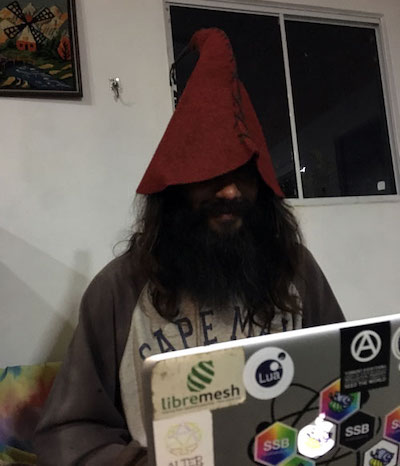
Luandro is a developer who does regular contributions to projects aimed at decentralizing communication such as Libre Router and Secure Scuttlebutt. He’s been living in Moinho, quilombola village, in Brazil for over five years building a community network with his neighbors.
Marcela Guerra
Marcela is a craftswoman with a focus on technological appropriation and object-making through workshops and immersive experiences. She holds a bachelor’s degree in social sciences from UNESP in São Paulo, and is part of the collective Sítio do Astronauta, which investigates and develops non-disciplinary technologies that amplify learning skills and enable artistic expression.
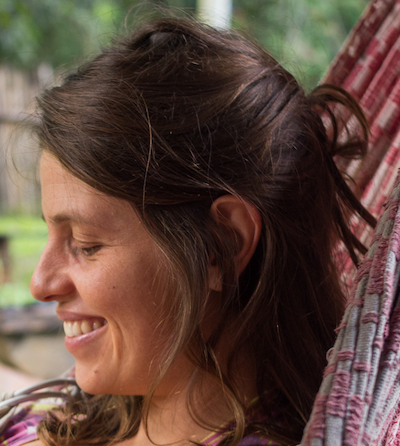
Since 2016 she has lived in the Souzas neighbourhood in Monteiro Lobato, São Paulo, Brazil where she contributes to a number of local initiatives: the “Cassava Festival,” an independent festival organized by the Souzas neighborhood community; the “Espaço do Fazer”, an open laboratory for research, creation and development of projects, located inside the Pandavas Institute; and the “Associação Portal sem Porteiras”, a non-profit association that seeks to develop alternative forms of accessing and producing information.
Currently, Marcela is the chairwoman of the Associação Portal sem Porteiras and member of its communication council, where she explores experimental methodologies to help enable the community to develop a critical sense in the processing of information produced by new media.
Merlin Van Lawick
Merlin was born in Dar es Salaam of Dutch, English and Mwela, Tanzanian decent. His diverse heritage has aided his open-mindedness and respect for cultural diversity. After finishing his A level education, he made up his mind to pursue a unique path outside of university, in which his fulfillment is a commitment to others and to the environment. He is presently in charge of developing the Pugu Environment Center, affiliated with the organization founded by his grandmother, The Jane Goodall Institute (JGI).
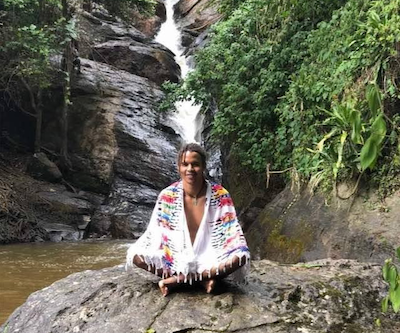
Merlin is committed to the emerging decentralized application technology and the potential of transparent, open-sourced and consensus tech-based solutions. He co-founded Afriplains Digital Technologies with the intent to provide resources to young talent. He recognizes that this emerging technology can address not only socioeconomic challenges and public empowerment but form an interconnected web between diverse cultures, eventually moving toward an evolution of a better-connected global consciousness.
Soledad Luca de Tena

Sol has spent her life living and working between South Africa and Spain, and calls both countries home. She has over a decade of experience in strategic project management within technology development, capacity building, social impact and policy — with a focus on utilizing technologies to address environmental and social challenges. She develops collaboration networks between often diverse interests, including communities, academia, industry and administration, and shapes projects that respond to critical needs. Sol is passionate about creating positive, meaningful change through equitable, sustainable interventions.
She is currently a director of Zenzeleni Networks NPC, South Africa’s first community network, as well as the vice-chair of the Internet Society’s global Community Networks Special Interest Group (CNSIG).
TB Dinesh
Dinesh, as part of Janastu and Servelots groups, has been exploring tech engagements for “Indian/South needs” through a rural research lab (iruway.janastu.org) near Bangalore., India Research activities have been generally oriented towards Web content accessibility issues for the low-literate users. Decentralized local mesh networks, indigenous archives, and Web Annotation tools frame the context of his work.
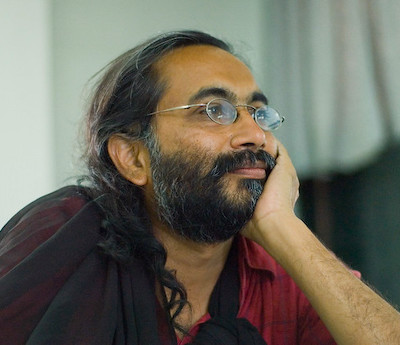
Dinesh returned to Bangalore from Palo Alto about 20 years ago for the development of “Pantoto Communities – community owned community knowledge” — software that helped non tech-savvy domain experts at small organizations do knowledge management without depending on high-cost tech resources. After meeting a number of people and organizations working on a wide range of societal issues, Janastu and Servelots became an R&D body for these groups. While the Pantoto idea is still active in spirit, its now being imagined as decentralized archives with Web Annotations tools to help link data, re-narrate content for low literates, and to enable mesh-based participatory services.
Tzu-Tung Lee (李紫彤)
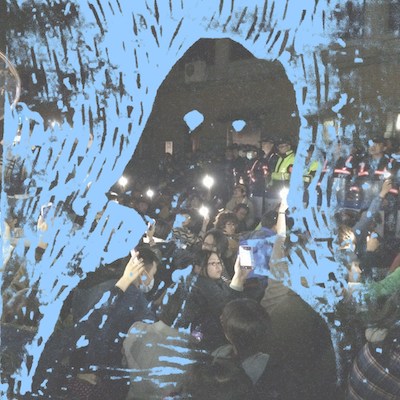
Tzu-Tung is a conceptual artist focusing on decolonizing art and political hegemony (tzutung.com). She surfs between performances, web-art, on-site installations, experimental films and creates her works in contemporary art, academia and political domains. On 2019, she co-found ARThon, Taiwan first hackathon for artists, and its trans-disciplinary community Tinyverse (arthon.cc).